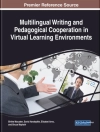‚The best source I have seen challenging mathematically talented students. The activities are thought provoking and enjoyable. I will recommend this book to parents as well as educators of mathematically talented students!‘
Sally Reis
Past President of The National Association for Gifted Children
Challenge, engage, and inspire your mathematically promising students!
Combining theory and practice, Sheffield expertly guides the reader through the process of mathematical talent development from identifying students with mathematical potential, to finding and creating first-rate problems for exploration and strategies for assessment.
The multi-level investigations in this book are designed to challenge students and inspire deeper and more original mathematical thinking in Number and Operations, Algebra, Geometry and Measurement, and Data Analysis and Probability.
Each investigation is developed in the following easy-to-follow format:
Relate —sets the stage for the investigation by connecting it to prior learning and the NCTM Principles and Standards
Investigate— poses the initial problem to start students thinking about the investigation
Evaluate and Communicate— provides solutions, probing assessment questions, and suggestions for teacher responses
Create— offers ideas for extending and deepening the investigation, allowing even the most accomplished students to add depth and complexity to their reasoning
Discussion— gives teachers hints on what to look for in student solutions, as well as ideas for encouraging students to dig more deeply into the mathematical concepts that are presented
Mathematically promising students have the potential to become the leaders and problem solvers of the future. Extending the Challenge in Mathematics provides the practical tips and tools educators need to help their students develop this potential to the fullest.
Inhaltsverzeichnis
List of Reproducible Forms
About the Author
1. Developing Mathematical Promise
What Is Mathematical Promise?
Who Are Mathematically Promising?
What Are the Goals of Mathematics Instructions?
How Might We Find and/or Create Good Problems to Explore?
What Models Might We Use to Increase the Numbers and Levels of Mathematically Promising Students?
How Should We Assess Success?
Structure of the Activities in This Book
2. Number and Operations
Investigation One: How Many Ways?
Investigation Two: Same Sums
Investigation Three: All in a Row
3. Algebra
Investigation One: Where Am I?
Investigation Two: Heads or Tails?
Investigation Three: Field of Dreams
4. Geometry and Measurement
Investigation One: Framed
Investigation Two: Shape Up
Investigation Three: Connect the Dots
5. Data Analysis and Probability
Investigation One: Who′s Got the Button?
Investigation Two: On Your Mark
Investigation Three: Bull′s-Eye
Resources
References
Index
Über den Autor
Dr. Linda Sheffield is a Regents Professor of Mathematics Education at Northern Kentucky University. She received her M. Ed. and Ph.D. in Mathematics Education from the University of Texas at Austin and her bachelor′s degree from Iowa State University. She has written numerous books and articles for both teachers and students and has conducted seminars for teachers across the United States and as far away as Spain, Germany, England, Sicily, Japan, Australia, China, and Hungary. Her books include Pre K – 2 NCTM Navigations series, a series of math problem solving books for children in third through eighth grade, an integrated math/science book for teachers of preschool through primary school children, and a math methods book for elementary and middle school teachers. She is past-president of the School Science and Mathematics Association (SSMA) and was chair of the Task Force on Promising Students for the National Council of Teachers of Mathematics (NCTM). She was also editor of the NCTM book, Developing Mathematically Promising Students. Dr. Sheffield directs the graduate program for teachers of the gifted at Northern Kentucky University and has conducted several grant-funded programs designed to encourage teachers and students in the areas of mathematics and science.












